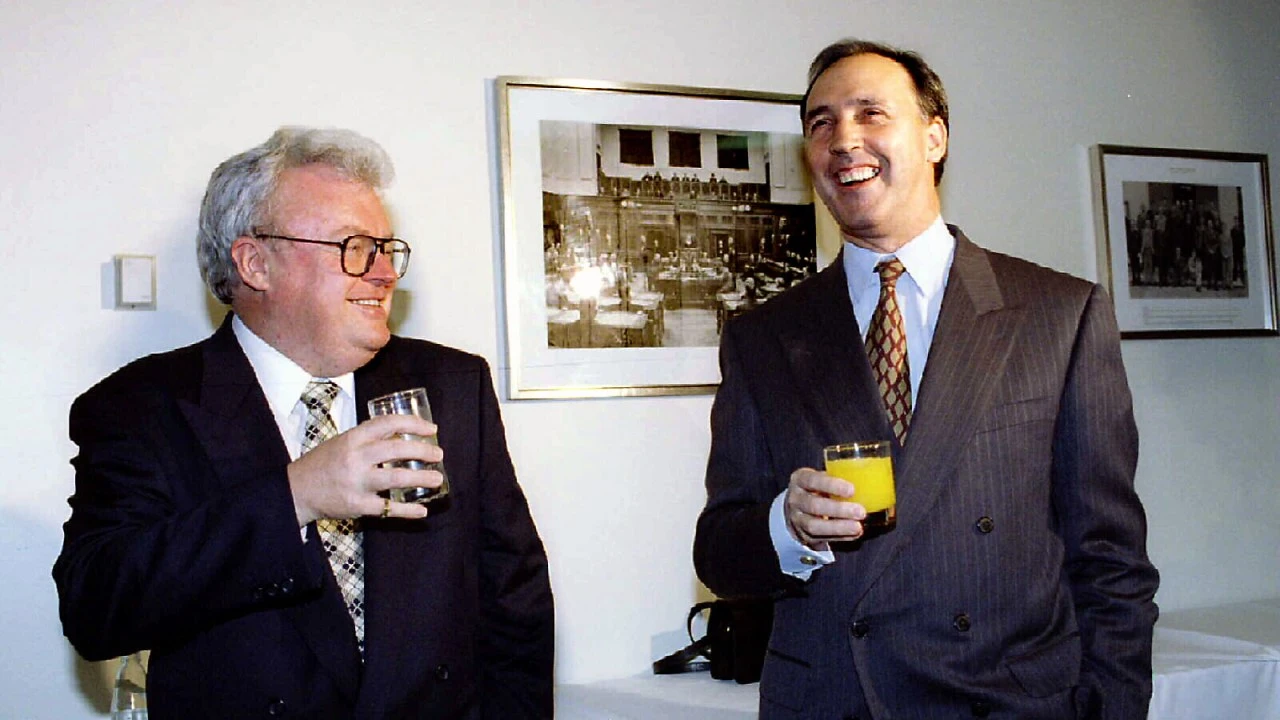A senior member of Paul Keating’s cabinet when Australia’s superannuation guarantee scheme was established has attacked the Albanese government’s planned super tax changes after a newly elected MP was caught misleading voters about the policy.
Labor’s plan to double the tax rate on funds in super accounts above $3m without indexation over time is back on the cards, as a new Senate make-up will likely allow the government to pass legislation with only the Greens’ support.
Another part of the proposal plans to mandate Australians pay taxes for gains on assets – such as farms and properties – above the $3m threshold in their super funds, even if they had not realised the return from these assets.
Former Labor senator Graham Richardson, who held about half a dozen portfolios under former prime ministers Keating and Hawke, attacked the policy in an interview with SkyNews.com.au.
“I don’t like this policy, and I don’t think you should ever tax people on money they haven’t got,” Mr Richardson said.
“I’ve always had an objection to it. I know it’s been a part of the tax system for quite a while, but I never liked it, and I still don’t so count me out.”
Labor’s proposed super tax changes have also sparked concerns about how it could hinder innovation and entrepreneurialism, as a large amount of the money invested in small tech companies comes from self-managed super funds.
“I think it’s an inhibitor on investment and I think investment’s critical in Australia,” Mr Richardson said.
“That’s what we don’t have enough of, so we should be removing any obstacles to investment.”
Mr Richardson’s attack on the proposal comes after a report recently elected Labor MP Matt Gregg, who dethroned former shadow housing minister Michael Sukkar in the eastern Melbourne seat Deakin, was caught misleading voters about the policy prior to the election.
The Australian reported Mr Gregg told a “meet the candidates night” the Albanese government’s plan to tax unrealised gains on funds in super accounts above $3m “is not Labor policy”.
“I’m not going to commit to that policy position that has been put to me because my understanding is it’s not my party’s policy,” he said.
“I think there is a bit of a mess particularly with self-managed super.”
Mr Gregg also attempted to downplay the fact Labor has baked gains from the tax into the budget.
Labor upgraded revenue forecasts from superannuation taxes in its budget by $9.7b up to the 2028-29 financial year, in part due to plans to tax unrealised gains on assets in funds above $3m.
“The budget line that has been quoted in that argument is more general in its wording than to say it is the implementation of that specific policy,” Mr Gregg said.
“I’ve been told, and I accept, that that is no longer the policy being brought by Labor in this election.”
The Greens, who will likely play a key role in passing the super changes through Parliament, want Labor to lower the tax threshold to $2m, but support indexing it over time to match the rate of inflation.
Leading fund manager and Wilson Asset Management founder Geoff Wilson supports the Greens’ call, but wants the threshold indexed well above the rate of inflation.
“With the Greens indexing it to the CPI (consumer price index), the risk there is young people are going to be significantly disadvantaged again because superannuation (is something) you effectively invest in assets,” Mr Wilson told SkyNews.com.au.
“What it would make sense for them to be looking at is growth in asset prices, which runs at probably double, if not more, than the CPI growth.”
Mr Richardson also supported the Greens’ move, but also took a shot at the minor party’s big spending proposals.
“Their view is spend, spend, who cares. But you can’t, if you’re running a government, adopt that attitude,” he said.
Labor has attempted to get the super tax legislation through the Senate multiple times, at one point trying to link it with a bill which would have scrapped debit card surcharges and reduce surcharges on credit cards.


